Peter Snow interview: ‘This will be the biggest election swing since 1945’
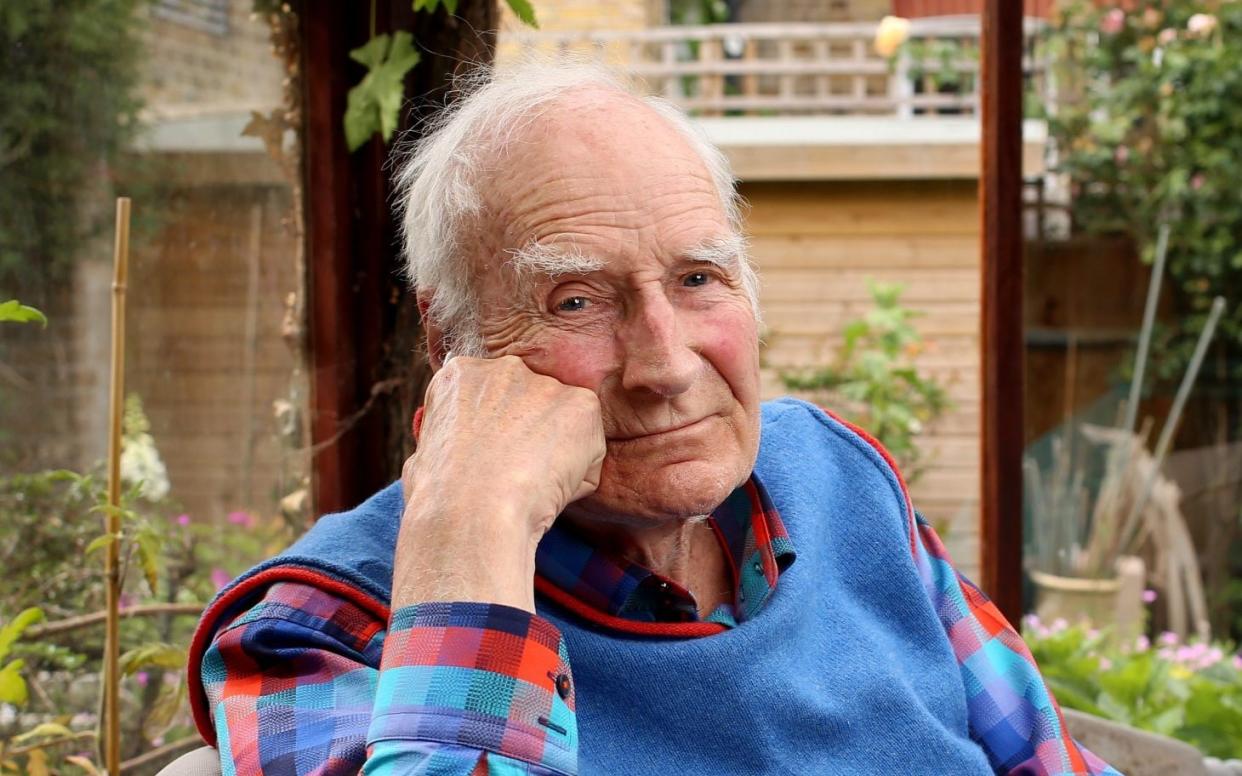
A yellow placard pokes out of the privet hedge of Peter Snow’s south-west London home, declaring he will be voting Liberal Democrats in the election. He spent the years between 1969 and 2005 scrupulously maintaining his professional objectivity as television’s most enthusiastic analyst of general election data (first for ITN and then for the BBC). He now chuckles that it’s “totally and utterly a relief” to nail his colours to the hedge. “Although,” he notes, “I’m voting this way because our local Lib Dem candidate is very good. I might have voted differently in a different constituency.”
At 86, Snow – who also presented Newsnight from 1980-1997 – beckons me into his kitchen with the vigorous sweep of the arm. The same sweep he once used as “King of the Swingometer”, where he waved over a map of the UK to show regions turning red or blue. On Thursday, he predicts that a “Labour landslide” will give us “by far the biggest swing since 1945 – even bigger than Tony Blair’s in 1997”.
With scant stoop in his 6ft 5in frame, and a rattling, good-humoured laugh, he bustles about making coffee like an avuncular crane. With his wife – journalist Ann MacMillan – away in Canada visiting their daughter, he’s clearly happy to have another newshound with whom to discuss the upcoming election.
“It’ll be a landslide for Labour, surely?” he says. Although he concedes he has found the whole campaign thus far “a bit depressing”. Rishi Sunak and Keir Starmer are both “very clever”, but he’s not convinced that either of them are “quite up to it”. “I don’t think it matters that neither of them has a generous dose of charisma,” he says. “What I don’t get from them is any sense of vision. They lack the ability of past leaders like Attlee and Heath, who were low on charisma, and Thatcher and Blair, who had plenty of it, to give us a clear view of the kind of country they want to see and how they are going to achieve it.”
Snow has also been irritated to see both Conservative and Labour politicians trying “to bribe us with the rhapsodies to come after they are elected when we all know the NHS, education and defence have major problems. Everybody is talking about ‘major reform’.” He sighs. “I’m not expert enough to know the answer but saying you can make it disappear without taxing more is nonsense.”
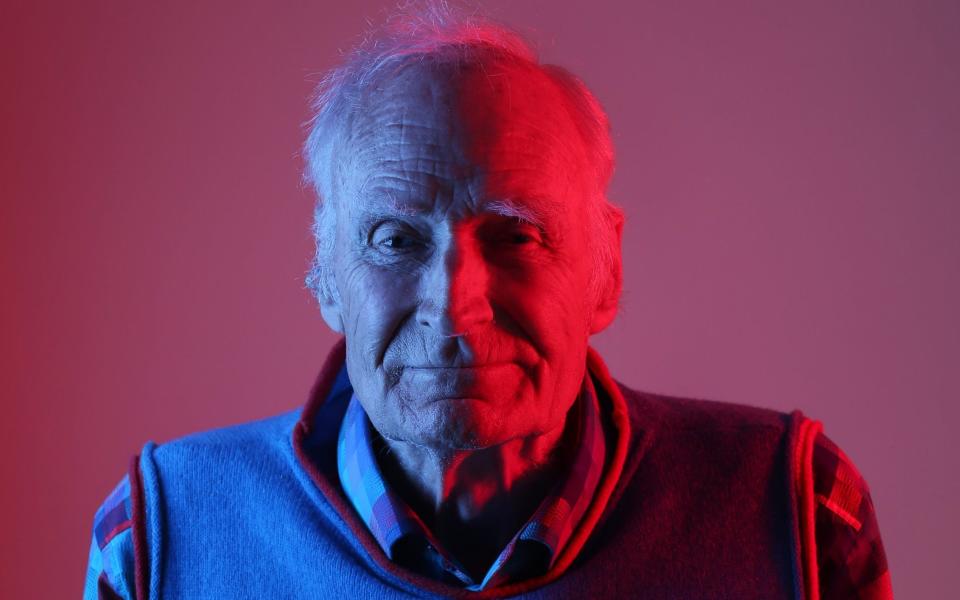
We sit in the cosy conservatory, which Snow added to the house shortly after buying it in 1980. Its shelves jostle with tools, rusting cans of WD40 and sculptures he brought back from reporting assignments for ITN in Africa.
There’s a lovely old barograph inherited from his “gentle, stable” father – a captain in the Somerset Light Infantry whose postings saw Snow born in Dublin and raised partly in Libya and Gibraltar, where his dad became Deputy Fortress Commander in 1956.
Snow has spoken in the past of his terror at being sent away to an all-boys boarding school in Eastbourne, aged just seven. Although he credits the experience with helping him develop independence, it left him a little detached from his younger brother Richard (born 10 years after him) and his parents, who both died in their 60s (his mother of liver cancer and his father of a brain haemorrhage) in the early 1970s.
Candles and a few souvenir wine bottles suggest the room has also hosted many of the “great big family gatherings, with lots of lively debate” that Snow enjoys. He’s close to his younger cousin – “incredibly brave and brilliant” former Channel 4 News presenter Jon Snow – and has six children from three relationships, including Dan Snow (TV history presenter and ambassador for the Electoral Reform Society) and 14 grandchildren. As Dan is married to Lady Edwina Snow, sister of Hugh Grosvenor, the 7th Duke of Westminster (whose net worth is estimated at around £9 billion), I ask if Snow worries if his grandchildren will be affected by their extreme wealth. “Worried?” he says. “Not remotely! The fact that Dan is part of a very wealthy family is neither here nor there. It’s a wonderful family. Very friendly.”
I scour the surfaces to see if I can spot a chunk of the Berlin Wall. Snow was broadcasting live from East Berlin when it came down in 1989. “I was in the middle of interviewing a very brave civil rights campaigner who opposed the Russian occupation when suddenly [co-presenter] Olenka Frenkiel appeared at the back of the studio carrying a great bundle – like a baby – and dumped it on the table between us.” It was rubble from the wall that was being bulldozed outside.
He remembers the thrill of “running out into the street to see East Germans bashing away at the wall with hammers”. He got on the wall to dance and came home with five chunks of the structure. “But whenever I was asked to open fêtes I would take along a piece and auction it. They all raised quite a bit of money but now I don’t have any left.” He shakes his head and grins. “Like a bloody fool, I never kept a bit and it has irked me ever since!”
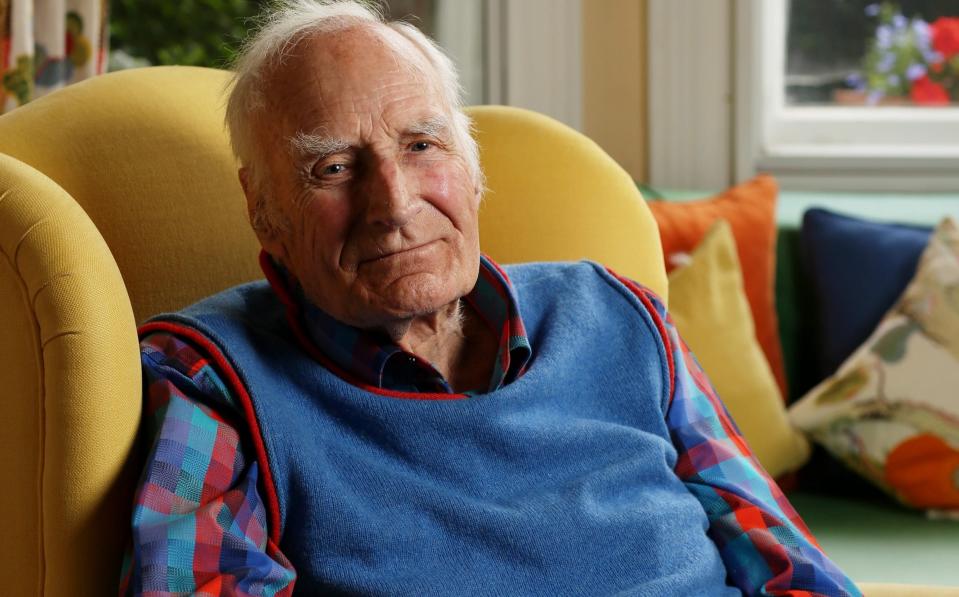
A copy of Private Eye’s Election Special lies on the coffee table. Nigel Farage’s face gurns from the cover and I ask my host how the Reform party will affect the vote. He says it reminds him “of the threat from the Right to John Major’s Conservative Party in the general election of 1997. Then it was the Right-wing Eurosceptic challenge from James Goldsmith’s Referendum party. It made a small dent in the Conservative vote and gave only a gentle boost to Labour’s huge landslide victory but I suspect Farage’s Reform party will do a lot more damage this time. Goldsmith was a faint sideshow, Farage’s cocky profile will make Reform severely damage the Tory vote. I’ll be surprised if they [Reform] get even a handful of MPs but it’ll make that election night programme all the more exciting! I wish I could be there!”
As a presenter, Snow had a compelling gift for brisk visual communication. He almost formed a double act with the Swingometer – the graphics device used by the BBC since 1955 to estimate the number of seats that will be won by different parties, given a particular national swing (in percentage points) in the vote towards or away from a given party. Today he tells me that while he misses the “excitement of being in a live TV studio”, his energetic approach was “too physically demanding” to continue.
He shakes his head: “In 2001 I invented a staircase to show what poor old William Hague had to climb. I was running up and down it and I realised – about half way through the night – that I really ought to stop doing this. In the old days presenters just sat at a desk – you could have done it forever. After the 2005 election, I decided I’d done enough. I was 70 at the time.”
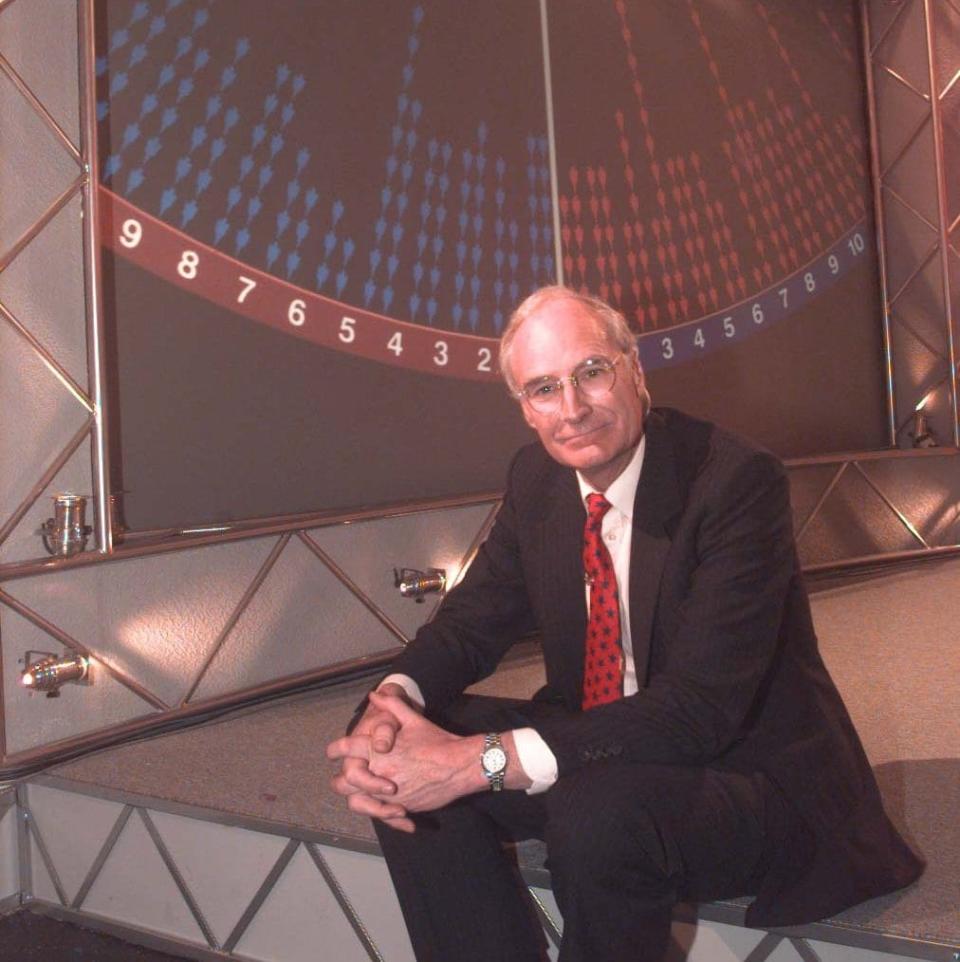
Snow was also starting to worry about his memory. He says it’s still “not a serious problem but I do forget names very quickly… terrible!” He suspects that “sharing enthusiasms” with his grandchildren helps keep his mind limber. “I just took one of my little grandsons to see the Roman exhibition at the British Museum and we were surprised to find a Roman shield with a swastika on it – the Romans had planted it there long before Hitler was born. It was fascinating to explain to my grandson what the symbol later came to mean.”
He was delighted to see the museum “absolutely swarming with visitors” because he worries about younger generations not being properly informed about history. Although he and his son Dan have co-presented documentaries on battles from these eras, he suspects teaching on “the Tudors and the Second World War are a bit overdone” in schools. Snow believes our children should be taught more “about the British Empire, what we did in the colonies. And teaching them about the slave trade is terribly important to get right.”
Still committed to hearing both sides of every story, Snow tells me he’s about to read Nigel Biggar’s Colonialism: A Moral Reckoning and that “though Biggar has been lambasted for being too sympathetic to the British Empire, what matters to me less than opinion is fact, and I’m keen to see what factual evidence he relies on to take his more favourable view.”
He believes younger people should do the same. “If people want to pull down statues then they’re perfectly welcome to do it. But before you’re driven to an extreme like that, just make very sure you know what actually happened.” He smiles. “So if my grandchildren start talking about the slave trade being a terrible thing I will tell them: “‘It was DREADFUL. But let’s also find out what we did to stop it. Because the Brits were quite good stopping it too.’”
When it comes to the tearing down of living people, Snow is “not one to worry about the private lives of people in public life. My wife is the great-granddaughter of David Lloyd George. Whatever his personal failings, he was the prime minister who did much to win the First World War.”
For these reasons he’s “very sad” that Huw Edwards is no longer on air. He says that: “Whatever Huw Edwards got up to – and I’m not entirely clear or concerned about what it was – he was a very fine television journalist, and I will seriously miss that. I’m sorry the BBC didn’t pay more tribute to that.”
He expresses warm admiration for many other former colleagues. He misses Jeremy Paxman’s tough interviews and admits to feeling “envious” of the retired broadcaster’s interrogation techniques at times. “The way he pursued Michael Howard, with the chutzpah to ask the same question twelve times. I don’t think I’d have had the guts to do that.” By contrast, he notes that David Frost’s brilliance lay in his ability to “charm people into revealing their inner thoughts”. He suspects his own style fell “somewhere in between the two”.
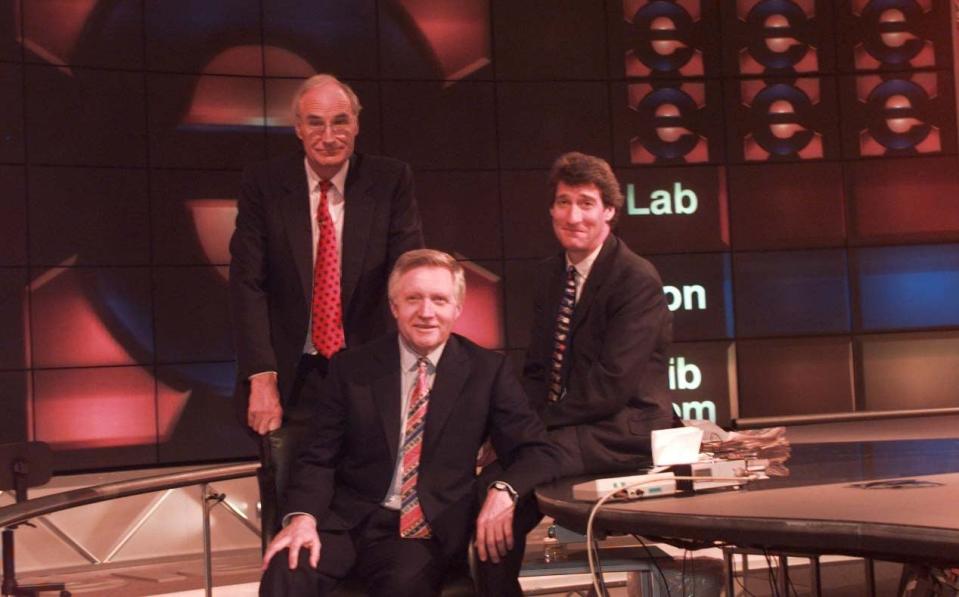
Though Snow is “an absolute junkie for all the mainstream news channels – BBC, ITV, C4 and Sky” he believes that “at a time when there is so much misinformation on social media, the BBC’s decision to cut Newsnight’s air time by a third is a disaster. Horrific.” He accepts viewing figures were down but doesn’t attribute this to a public loss of faith in Auntie, but to “rivalry between so many competing sources and young people not watching live news anymore, which is a great shame”.
Snow clearly relished the jeopardy of live broadcasting. “Even the times when things went wrong, even the embarrassments were part of the excitement,” he grins. He delights in describing how the Swingometer “blew up” while he was covering a by-election in 1994. And becomes animated when talking about being in a plane crash on an island off Seattle on his way to film the San Andreas Fault for Tomorrow’s World in 1999, noting that “as we slowly sank down into the trees I wasn’t thinking about my family. I was thinking: ‘Dash it! We’re going to lose this story!’ It wasn’t until later I thought: ‘I’ve escaped from being killed.’”
Before I leave he’s keen to talk about the current debate around compulsory national service. Despite his military heritage – his grandfather served as a General in the First World War – Snow admits that he was “very bad at obeying orders without question” during his own national service. “It made me get up in the morning, I felt I was contributing,” he reflects. “But I think Rishi Sunak just threw out this policy, rather irresponsibly I think, in the middle of a campaign.” Snow prefers the idea of “community service” to national service. He’d like to see young people “volunteering with old people. Social care is so starved of funds and staff. Maybe it could help with that”.
As he shows me to the door – out past his old Spitting Image puppet – Snow tells me that he remains an optimist. “I’ve been an immensely lucky guy with a rewarding career, a wonderful family and I live in the best country in the world.” Though he worries that our current leaders might not have “the ability to cope with what’s happening in Russia and America”, he feels “confident that we will be able one day soon to put Putin and Trump behind us”.

 Yahoo News
Yahoo News 
